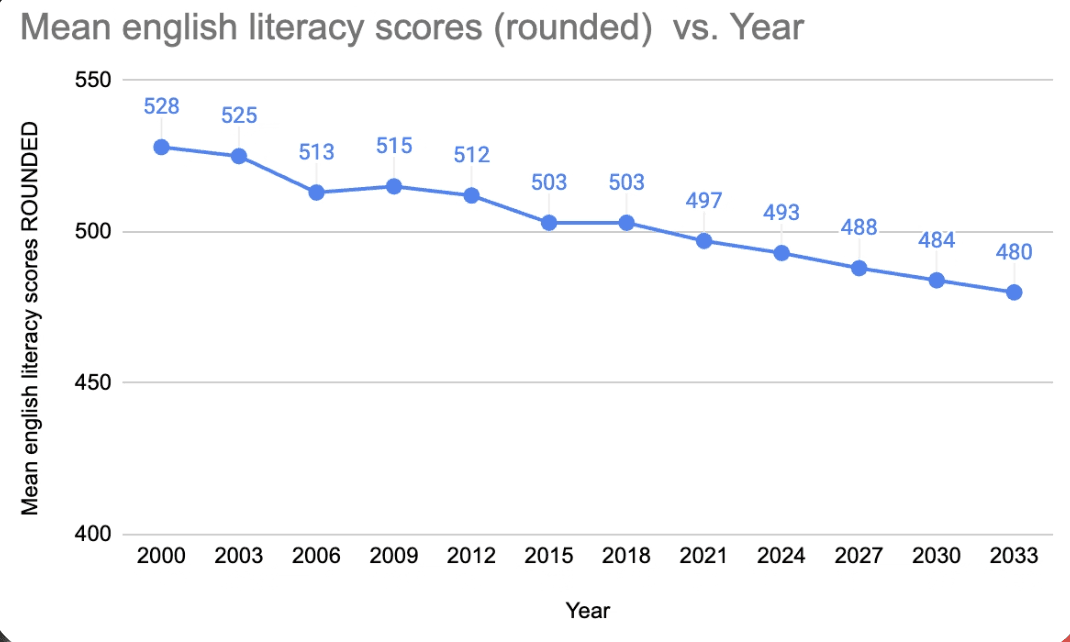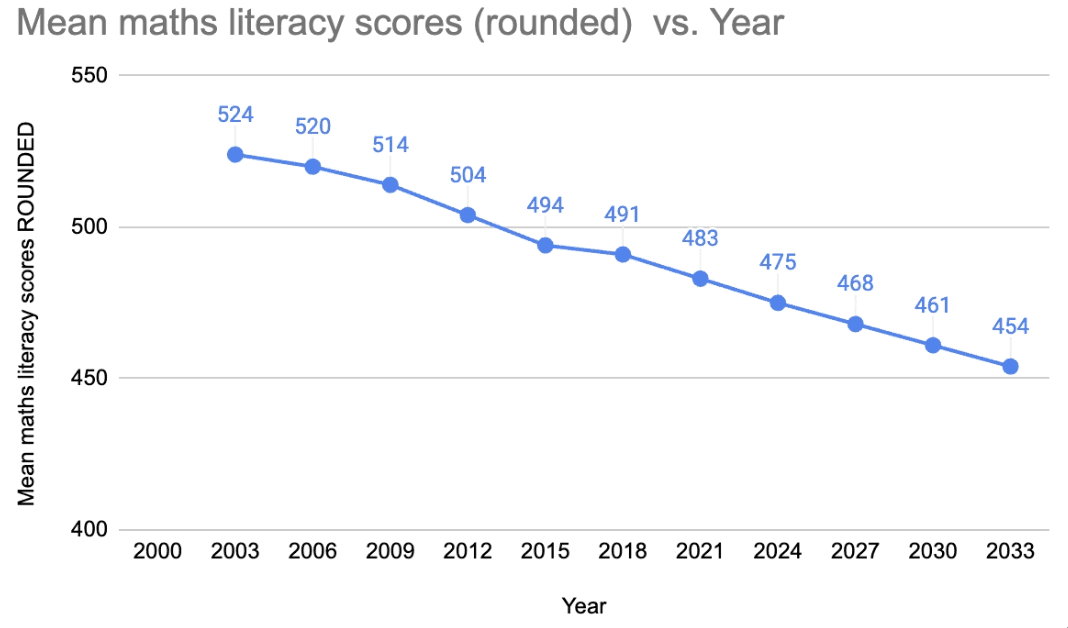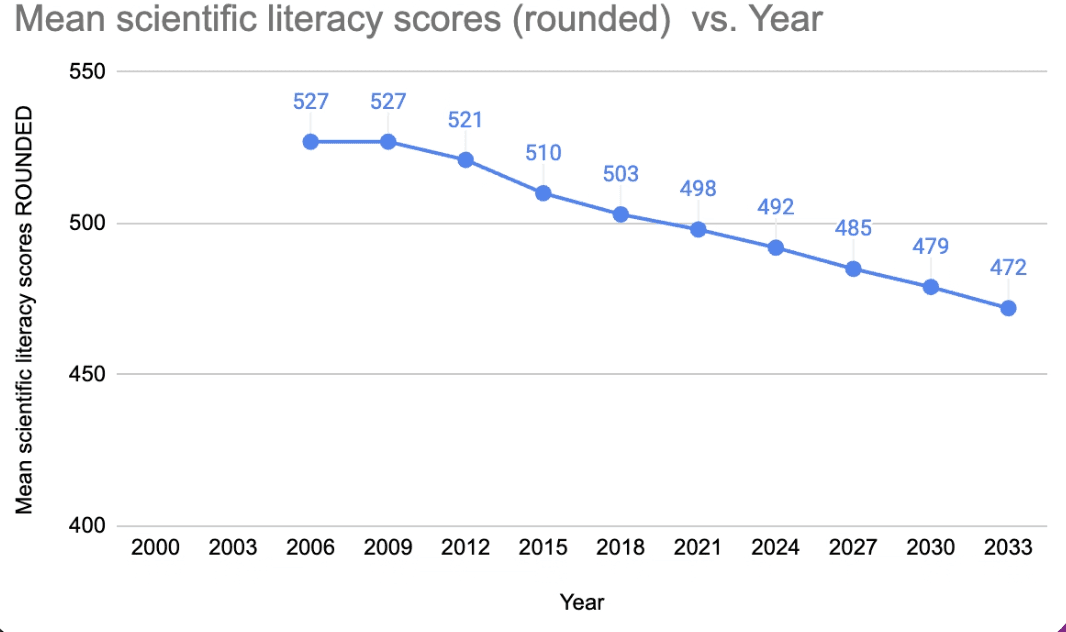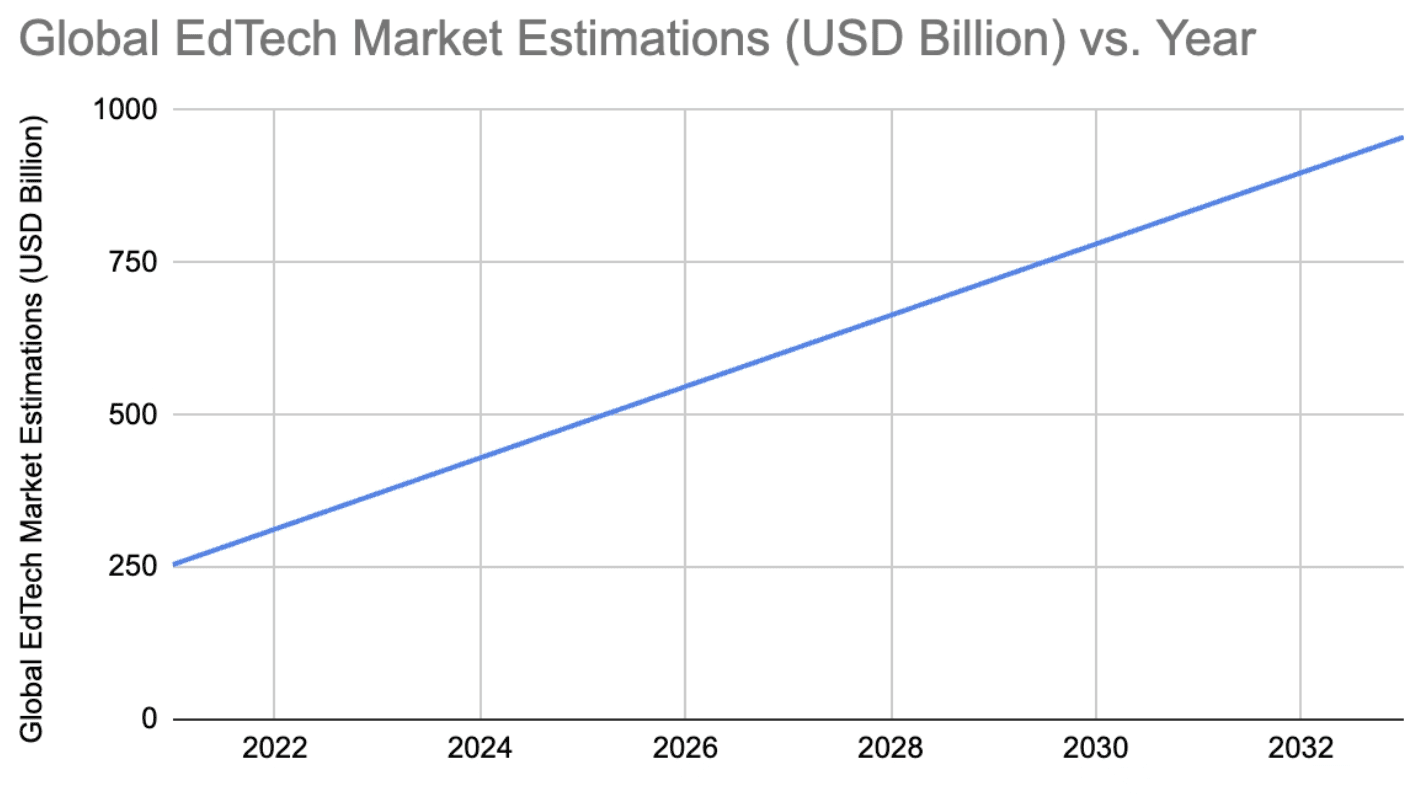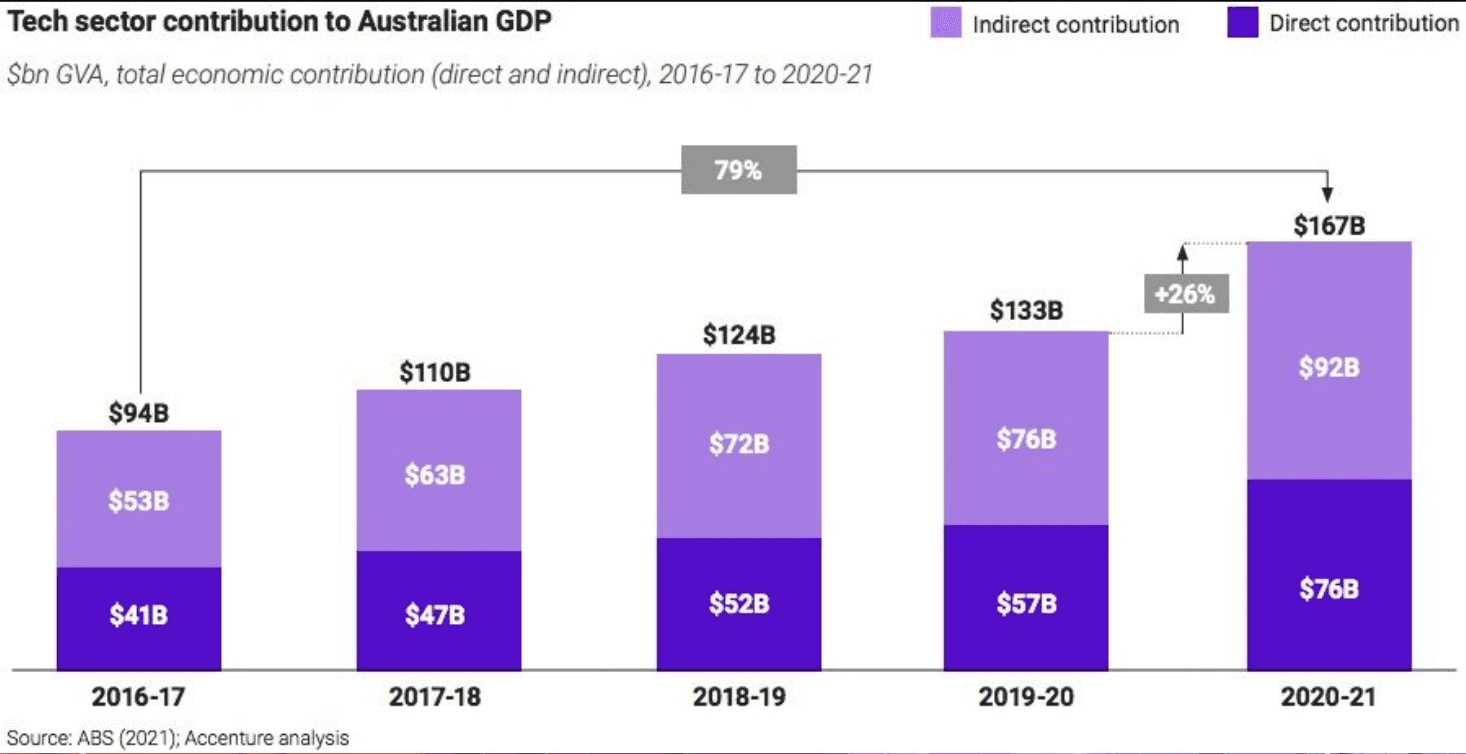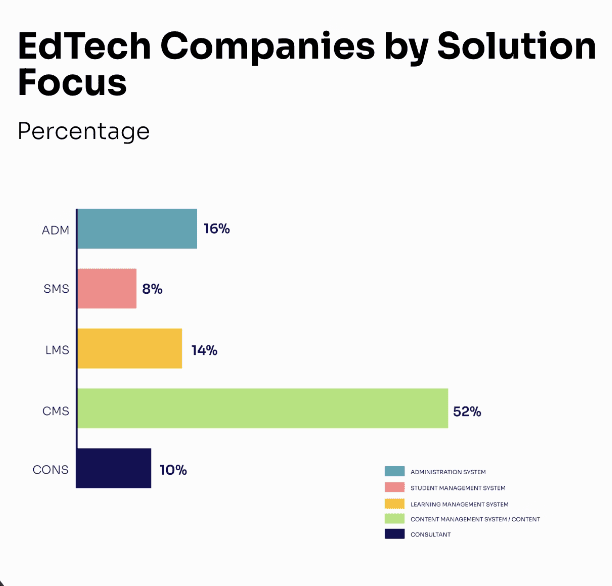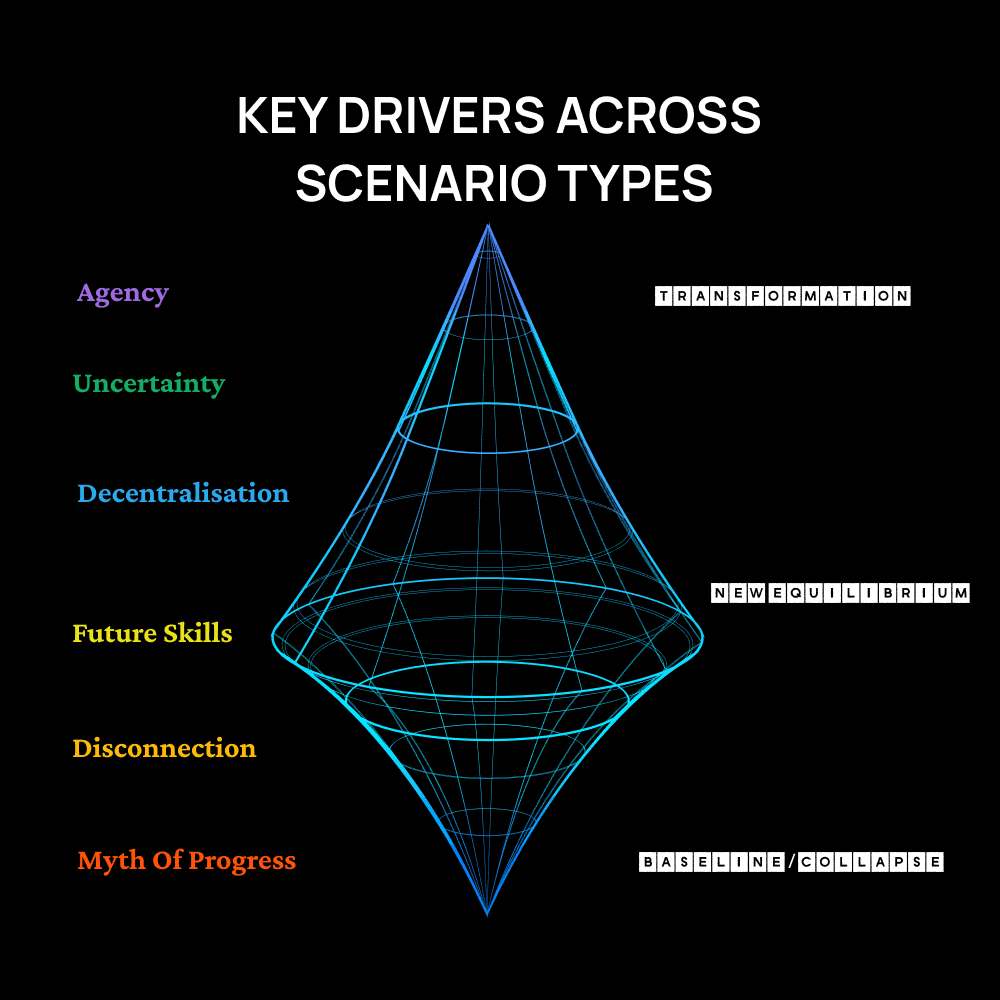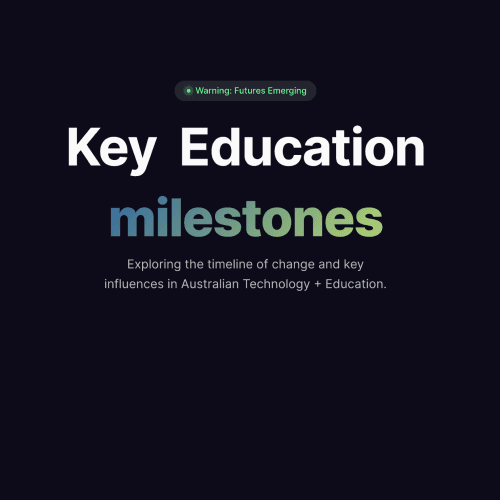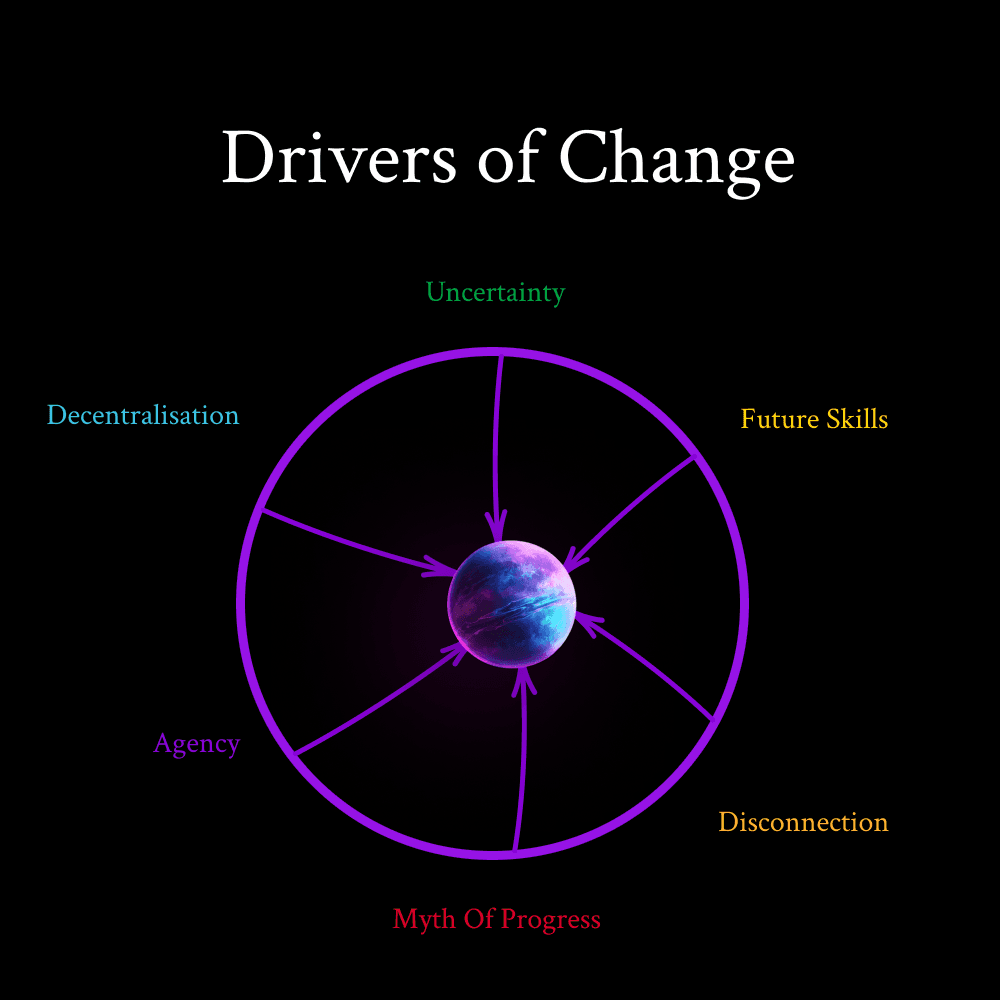English Literacy
Projected mean scores for Australian students calculated on existing OECD Australian Pisa Education Surveys 2000 - 2018.
Maths Literacy
Projected mean scores for Australian students calculated on existing OECD Australian Pisa Education Surveys 2000 - 2018.
Science Literacy
Projected mean scores for Australian students calculated on existing OECD Australian Pisa Education Surveys 2000 - 2018.
Global Edtech Growth continues
Figures based on researchmarkets trend projections for provocation purposes only.
Source: Businesswire
Australian Growth continues
Australia's 2nd largest startup sector and 3rd largest export continues to grow.
Source: Accenture Analysis via consultancy.com.au
Tech as Tool continues
With a continued focus on content management systems and administrative technology.
Source: Edugrowth Australia
Behind the Scenes
Explore the chain of custody from
which this scenarios was developed.
THE RISE OF AN EMERGENT SYSTEM
The inability of unified policies and alterations to education to boost core math and literacy skills hinders the development of key Future Skills for the 21st Century in schools, teachers, and students. Those students who have the ability, seek out more contemporary relevant skills elsewhere, perhaps via online or digital learning platforms. Australia's potential to generate forward-thinking school graduates decreases, and a shift towards online learning via worldwide systems causes an uptick in students choosing international post-graduate studies. Australia's job market becomes inappropriately out of sync with the global economy, leading to Australia hitting a skills development plateau in knowledge, science, and research sectors on a worldwide scale.
AN URGENT REFRAME
Centralised policy and practice reform fails to increase basic maths & literacy measures and hinders the development of 21stC Future Skills amongst schools, teachers and students. Students who are able, seek more contemporary relevant skills elsewhere either through online or virtual school environments. Australia's ability to develop future-focused school graduates declines, and increased online learning through international systems results in more students choosing international post-graduate study. Australia's job market becomes disproportionately out of step with the global economy and Australia hits a skills ceiling on knowledge / science / research work on the world stage.
MIND THE GAP
The Australian Govt.'s continued shift toward centralising school operations and reform has failed to increase key OECD measures as these measures have been adjusted to better reflect 21stC skills, and contributed to declining capabilities overall within the education sector. Teachers' ability to adjust and adapt with more flexible and future-focused pedagogies is lower than ever. Two critical disconnects are increasing - both the gap between education policy and practice, as stretched teachers struggle to balance top heavy reforms with the realities of teaching AND the critical gap between the growing edtech and future-work ready student populations.
DISTRACTIONS FROM THE ENDGAME
Australia's edtech sector continues to grow dramatically with renewed focus across content management and administration technology platforms. The new Myth of Progress here is increasingly improved and efficient national aptitude scores (based on a national centralised curriculum) with metrics that have become irrelevant in a wider global context.
Productivity continues to decline despite government's best efforts at increasing teacher efficiency. The gains in focus on consistent national curriculum and testing, have been achieved at the expense of capability building within schools and teachers themselves. Teaching numbers decline further with lower entry point requirements to attract more applicants; teaching becomes a last choice profession further reinforcing the perceived need for centralised leadership.
GLOBAL CITIZENS OF IMPACT
Agency has increased amongst parents as homeschooling numbers skyrocket. Large percentages of (economically-advantaged) children are being homeschooled or attend an online virtual school. Of those students still physically attending school, larger numbers of advantaged children are attending part-time and supplementing with online education programs as more parents take their children's education into their own hands. Given declining productivity, teachers' pay has not increased substantially, and more teachers are shifting focus to take advantage of these new more profitable educational marketplaces.
DECENTRALISATION
EVERYTHING IS CONNECTED
Bucking the global trend toward decentralisation; Australian Education continues with greater centralisation at a national level due to increasing pressure to increase productivity and bring all schools into line. Curriculum is highly structured with clear output and nationally-focused assessment metrics driven down through schools to all teachers. The role of teacher becomes one of 'instructing' a tightly defined syllabus and national focus narrows in on internal assessments & testing to improve school scores as evidence of reform. Key metrics of success become more decentralised, as Australia's education system decouples from global measurements of future-readiness and capability.
Baseline Scenario
Welcome to 2033
Welcome to 2033. Education is now completely centralised at a national level due to productivity pressures; the curriculum is highly structured and education technology has delivered clear output, administrative efficiencies and consistent assessment metrics. The role of teacher has fast become one of 'instructing' a tightly defined syllabus as national policymakers continues to focus in on assessment testing as evidence of reform. However the centralisation of the education system has not led to an increase in productivity given the changing work environment. As the pace of edtech growth increases further, the rise of increasingly complex global markets and productivity begins to set a new pace . . the Australian education system begins to significantly lag behind its global counterparts. We see this in the 2033 OECD PISA Survey, where key metrics have been redefined globally to meet evolving future requirements, and resultantly Australian student receive their lowest scores in history.
Whilst centralised policy reform and widespread education technology has increased the efficiency of communication and assessment between schools and government, educators and teachers on the front lines have struggled to adapt. Concerned parents have increasing begun to intervene and seek alternative methods of education, either wholesale shifts to non-standard education or supplementing govt.-run education with AI tutoring and online or virtual alternatives. We see a host of international 21stC skill-based programs enter the virtual space; and the irony of the times is that whilst Edtech content management and administration technology is now Australia's number # 1 export, the majority of (socially advantaged students) are being educated by non-AUS online and virtual platforms which focus on capability development through project-based learning in a digital-native context.
Given declining productivity and stagnated teacher pay; high performing teachers are looking to international learning spaces to reskill and reconnect with future-focused educational communities and virtual educational markets. Given the large percentages of students engaged in decentralised schooling, we observe both a widening of disadvantaged and advantaged students, along with a major increase in Australia's brain drain as students are educated outside the traditional school system with a more global focus, and subsequently choose international post-graduate study. Australia's job market becomes disproportionately out of step with the global economy as Australia hits the capability ceiling inherently embedded within the current system.

